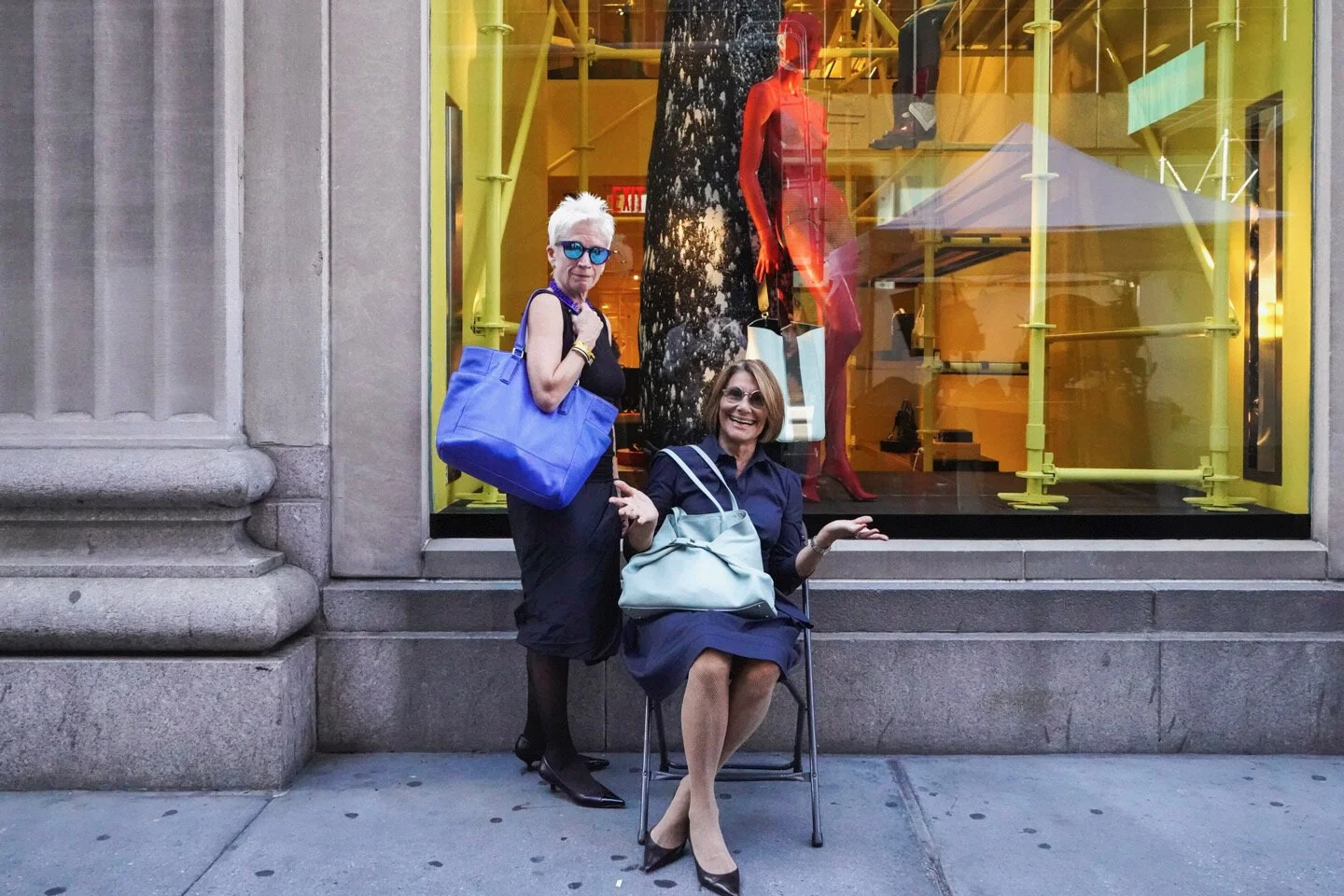Owning Your Age Does Not Mean Going To The Dogs.
By Karen and Erica
We were a little startled to read recently that a beauty product the manufacturer still calls anti-aging was being bought mostly by much younger women. Maybe they think that if they start the anti-aging process early they will never be old. Or look old.
The thing is—you only look old if you embrace being old. And if you don’t embrace being old, you won’t get old. Just older. And none of this has anything to do with anti-aging products.
What does old mean? Here’s what Merriam Webster says:
Old, ancient, venerable, antique, antiquated, archaic, obsolete mean having come into existence or use in the more or less distant past. Old may apply to either actual or merely relative length of existence.
OK, we did come into existence many decades ago—though we do not regard it as the distant past. But that does not make us antiquated or archaic or obsolete. It makes us older than people who were born after we were. It means that our minds and our bodies shine with the lustre of experience. We have no plan to become frail and needy, and blame it on age. We’re keeping up nicely. So don’t call us old.
Does that mean we want to look younger than we are? No. We worked hard to get where we are today. We are proud to be here.
Does it mean we let nature take its course? Not at all. We cannot, and do not want to, compete with a younger face or body. But we do want to present our best selves to the world. We are all living much longer than we did even a century ago, and evolution has not quite caught up. We need to do regular maintenance. And a little enhancement. Just like a vintage car—we want to stay shiny.
Is it anti-feminist to embellish? Of course not. Feminism does not dictate how we present ourselves, and never required that people look bedraggled. (OK, for some of us the burn the bra thing was complicated. But we navigated being feminists with bras.)
We regard all of this as pro-aging—a term we began using some time ago. We were happy to see it used in a recent WSJ article about skin products. We’ll take that as a compliment.
So yes, we do all kinds of things to keep looking our age.
-
We work out, and we walk. Especially now, in the city during the pandemic. We are of the view that if you walk fast, you are not old, and no-one will think you are old.
-
We dress carefully. When we are out and about, or on Zoom, or even alone, we try to be put together. We like elegant clothes—graceful and stylish even if informal. (We seldom think of sweat pants as elegant, but we recently saw a neon outfit that might fit the bill. Elegance is flexible.)
-
We get our hair done—including color that in Karen’s case is rather obviously not natural. Why? Because she Iikes spiky acid blonde hair. Erica’s is styled to be more classic. We both know our hair is part of our look, and we use it to make our look express who we are now, not our younger selves.
-
We try hard to use makeup. Neither of us grew up with good makeup skills, but we are learning. We hear those who tell us we must emphasize our eyes when we wear masks, so we have actually learned to use eyebrow pencils and colored eye tints. Is using makeup consistent with looking our age? Of course it is.
-
We haven’t tried facelifts, but friends have. Why not, if your face has overreacted to decades of 24/7 stress?
We're not fighting our age, but we’ve learned over the decades that everything important in life requires care and attention. That includes our appearance. Never in our lives have we thought that just letting ourselves go was a good idea—even when we were younger and we were supposed to look natural. The natural look was hard!
We worked at our appearance then, and we work at it now. We aim to look our age.

